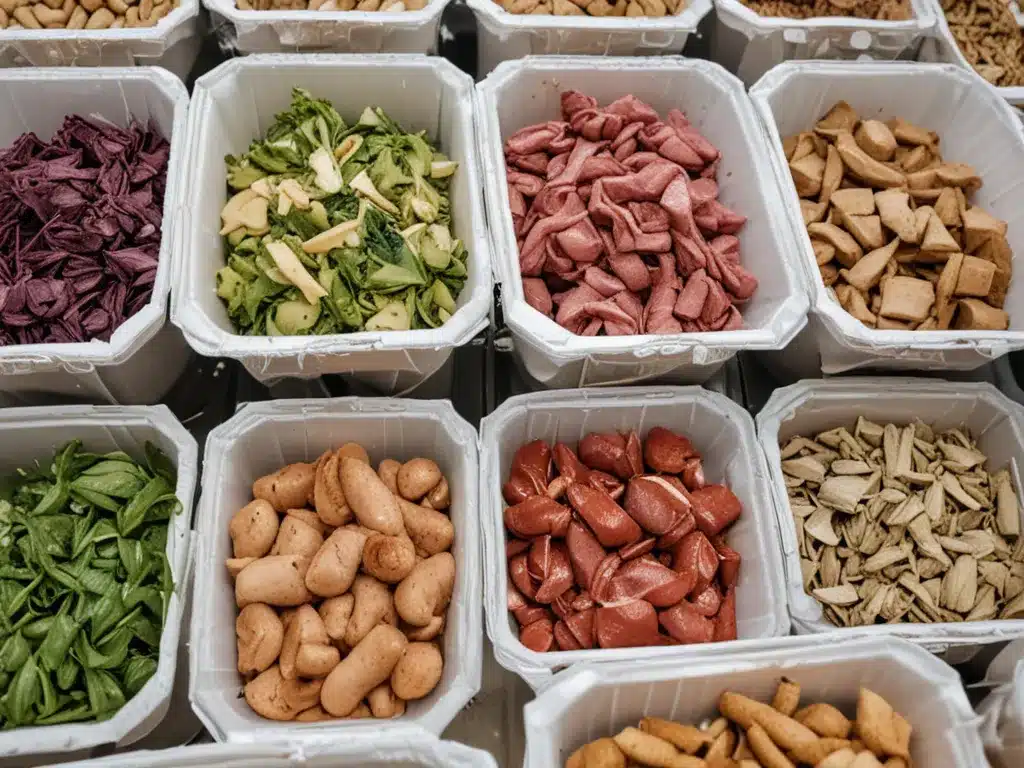
As someone who cares deeply about reducing food waste, I have made conscious efforts to change my portioning habits at home. While I used to pile high amounts of food on my plate without thinking twice, I now focus on taking smaller, more mindful servings. This simple shift has helped significantly cut down on the leftovers I throw out each week. In this article, I will explore the benefits of portion control and provide tips for practicing it daily to generate less food waste.
The Impact of Portion Sizes
Excessively large portions have become the norm in recent decades, skewing our perceptions of appropriate serving amounts. However, overeating does not equal satisfaction – it often leads to ** feelings of bloatedness and guilt over unfinished food. Studies have shown that smaller plates can trick the mind into believing a meal is more filling than it truly is. By simply downsizing dishware,** one can unknowingly decrease calorie intake by hundreds without noticing. At restaurants and home, I now use smaller plates to naturally limit excess portions.
Learning New Habits
Adopting portion control requires changing long-held behaviors. In the beginning, it can be challenging to get used to less food on the plate. I had to actively monitor my urges to continue piling on servings and practice patience as my stomach adjusted to realistic amounts. Now, my eyes do not deceivingly make me think I am still hungry after a modest meal. Taking the time to fully chew and savor flavors also enhances this feeling of fullness. With consistency, monitoring external cues like plate size rather than internal hunger signals has become second nature.
Using Appropriate Containers
The containers we use to store and transport food can enable or discourage mindful portions. For snacks prone to mindless munching like chips, I opt for single-serving bags or bowls instead of full-sized family packages. Measuring cups assist with accurately portioning dry goods like grains and pasta. When ** meal prepping, I utilize compartmentalized containers to separate mains from sides rather than mixing everything together in one bin where servings become ambiguous. Seeing individual components visually segmented** helps curb the tendency to over-scoop.
Benefits of Portioning with Purpose
By making a conscious effort to take modest helpings, I’ve noticed significant decreases in the amounts of uneaten leftovers piling up in my fridge each week. Less waste means lower grocery bills over time and a lighter environmental impact. Physically feeling satisfied instead of stuffed after dining has also improved my overall wellness. With simple techniques like using smaller plates and appropriate storage containers, portion control has become second nature for mindfully enjoying my food without excess.
Sample Weekly Meal Plan with Modest Portions
| Meal | Sample Portions |
|---|---|
| Breakfast | 1 piece of whole grain toast with 1 tbsp nut butter and half a banana |
| Snack | 1 serving of plain yogurt mixed with 1⁄4 cup granola |
| Lunch | Small salad with 3-4 oz of grilled chicken and 2 tbsp dressing |
| Snack | 1 medium apple or 1/2 cup of mixed berries |
| Dinner | 3-4 oz fish or poultry with 1 cup steamed vegetables and 1⁄2 cup brown rice |
By following portion guidelines tailored for each meal as seen in this sample weekly plan, I’ve found success in consistently taking modest helpings without feeling deprived. Of course, occasional treats in balanced moderation are important too for enjoyment and sustainability long-term.
Conclusion
In shifting from mindlessly large to mindfully small portions, I’ve generated less kitchen waste each week while also improving my well-being. By using visible markers like appropriately sized plates and containers to guide true hunger versus habit, downsizing servings has become effortless. Spreading the message of conscious portioning can inspire others to explore sustainable eating patterns that are fulfilling yet prevent excess. Mastering moderation through modesty has benefits beyond just waste reduction – it cultivates a more nourished relationship with food overall.






